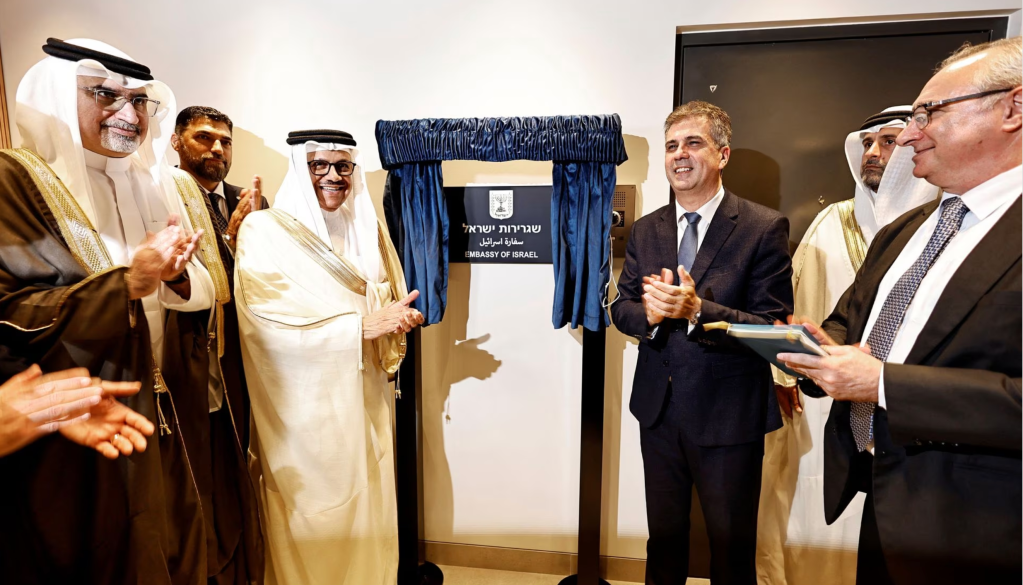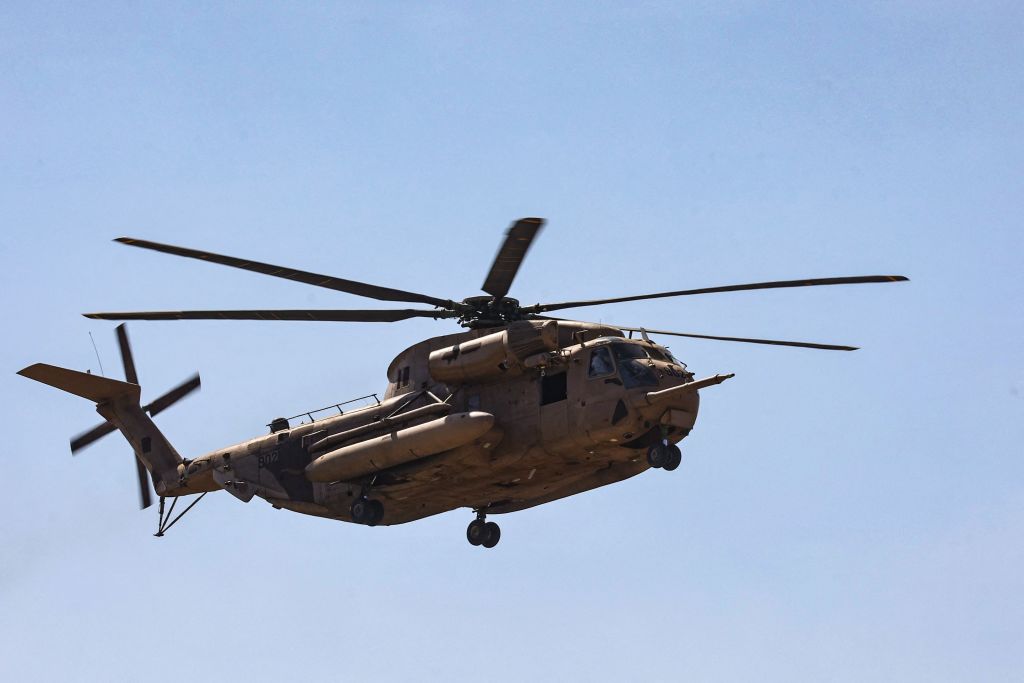Why the attack? Why now? What pretext? For Muslims like me, who have been following the Israel-Arab peace talks with hope and expectation, the atrocity does have a monstrous logic: Hamas wants war. Hezbollah wants war. But in recent months and years we have seen peace talks between Israel and the Emirates, Bahrain and Saudi Arabia. Today’s attack, certain to solicit a furious response by Israel, will push Middle Eastern opinion back towards polarised extremes. This is an attack not just against Israel but on the whole process of Israeli-Arab rapprochement.
Sunni jihadis (Hamas) and Shi’ite jihadis (Hezbollah) joined forces for today’s attack and this alliance needs to be seen the context of recent events. Last month, Saudi Crown Prince Mohammed Bin Salman (MBS) gave an extraordinary interview to Fox News where he declared that ‘every day, we get closer’ to normalising relations with Israel. The Saudis would get US blessing to develop civil nuclear power. After the success of the Emirati-Israel detente following the Abraham Accords, a Saudi-Israel agreement almost looked like a done deal.
Iran was horrified: didn’t they know Jews are the enemy? Hasan Nasrullah, secretary-general of Hezbollah, castigated MBS. ‘The ummah [‘Islamic world’] needs to take responsibility for the Palestinian people. The Arab world must not abandon the Palestinians. The Zionists must hear the roars of the Muslim world,’ he ranted. ‘Any country that signs a normalisation agreement [with Israel] must be condemned and its actions denounced.’
The Saudi-Israeli rapprochement was threatening to dismantle Iran’s ‘Jews vs Muslims’ worldview, a narrative copied by no end of useful idiots in the West. The ayatollahs were in a panic with Iran’s supreme leader delivering a similar tirade on Twitter: ‘[Arab] governments that are gambling on normalising relations with the Zionist regime will lose… Imam Khomeini once described the usurper Zionist regime as a cancer. This cancer will definitely be eradicated at the hands of the Palestinian people.’
This is not a conflict of the Arab-Muslim nations with Israel: this is a new war involving Iranian and Arab forces against Israel.
But these words had no effect: MBS was determined to close the Israel deal. A new world was being created where new and lucrative trade links were formed between Israel and the Arab world. In March, Israel and the Emirates agreed a free trade deal. Only last month, Israel’s foreign minister was in Manama signing a free-trade deal with Bahrain. Photos (below) showed Arabs gathering beside their Jewish visitors and applauding as they opened a new Israeli embassy. Talk was of a shared Jewish/Muslim future. This was not in the script – for Hamas, or the ayatollahs.

Mohammed Bin Salman’s obsession is to create a post-oil economy in Saudi Arabia and he has been in a rush to move on from the old enmities. Israeli spending on Middle Eastern imports has doubled in the last two years alone and was set to double again: normalisation was moving with breakneck speed. So MBS, not one to be easily intimidated, carried on and didn’t care about the warnings from nutcases in Iran or old-school psychos like Hezbollah and Hamas.
But he did care about Palestine, as every Arab leader has to care about Palestine. ‘For us, the Palestinian issue is very important. We need to solve that part,” Bin Salman told Fox. So here was the vulnerability in the Saudi-Israel deal, and it has just been hit with 5,000 rockets fired at Israel. The inevitable Israeli retaliation was always going to make it politically difficult, if not impossible, for the Saudis or anyone else in the Arab world to continue to ‘get close’ to Israel. It pushes people back to the extremes where Hamas and others live.
This is about a ideological battle within the Muslim world: the moderates vs extremists. The latter have been losing hearts and minds recently, as a younger generation of Arabs started to see Israel more as a partner than a mortal enemy. Throughout the Arab world, Muslims will see in these attacks Hamas and Hezbollah, both fanatics, trying to seize war from the jaws of peace.
Together with Palestinian Islamic Jihad (PIJ), they are Islamist jihadis who see themselves in a war with global Jewry. They are motivated by a lethal, genocidal hatred for the Jewish people. Hamas is driven by a totalitarian ideology which has more in common with European fascism than anything from Islamic history.
Southern Israel is now embroiled in open conflict as Israel moves to expel the jihadists who have taken territory, kidnapped civilians and worse. Islamists will hold these hostages at ransom for hundreds if not thousands of incarcerated Islamists terrorists held in the Israel. While we are transfixed with scenes in southern Israel and Gaza, Iran may well prepare to order tens of thousands of Hezbollah troops into an assault on Israel from the northern border. This is why Israel has declared itself in a state of war: it expects more assaults to come.
Hezbollah has praised today’s attack. ‘We congratulate the Palestinian fighters for this operation,’ said Yahya Rahim Safavi, an adviser to Iran’s Ali Khamenei. Iran has timed its strikes effectively: EU ballistic missile sanctions expire on 18 October under a UN Security Council resolution endorsed by the Joint Comprehensive Plan of Action — after which Iran can import and export arms worldwide.
Five years ago, I was at the global summit at the International Institute for Counter-Terrorism at what is now Reichman University. Israeli leaders, including the IDF commander of Israel’s Northern Front, warned that the next conflict would be not only with Hamas but with Hezbollah. It would be bloody, extremely intense and door to door, he said — dwarfing the previous 2006 war of Hezbollah and Israel.
This new war threatens every Muslim nation in the region that had been hoping for peace, and threatens to destabilise the Muslim-majority world. The reverberations of this could be greater than the region can contain. It’s hard to imagine a conflict worse than the Russia-Ukraine war, but wemay be about to see just that.







Comments